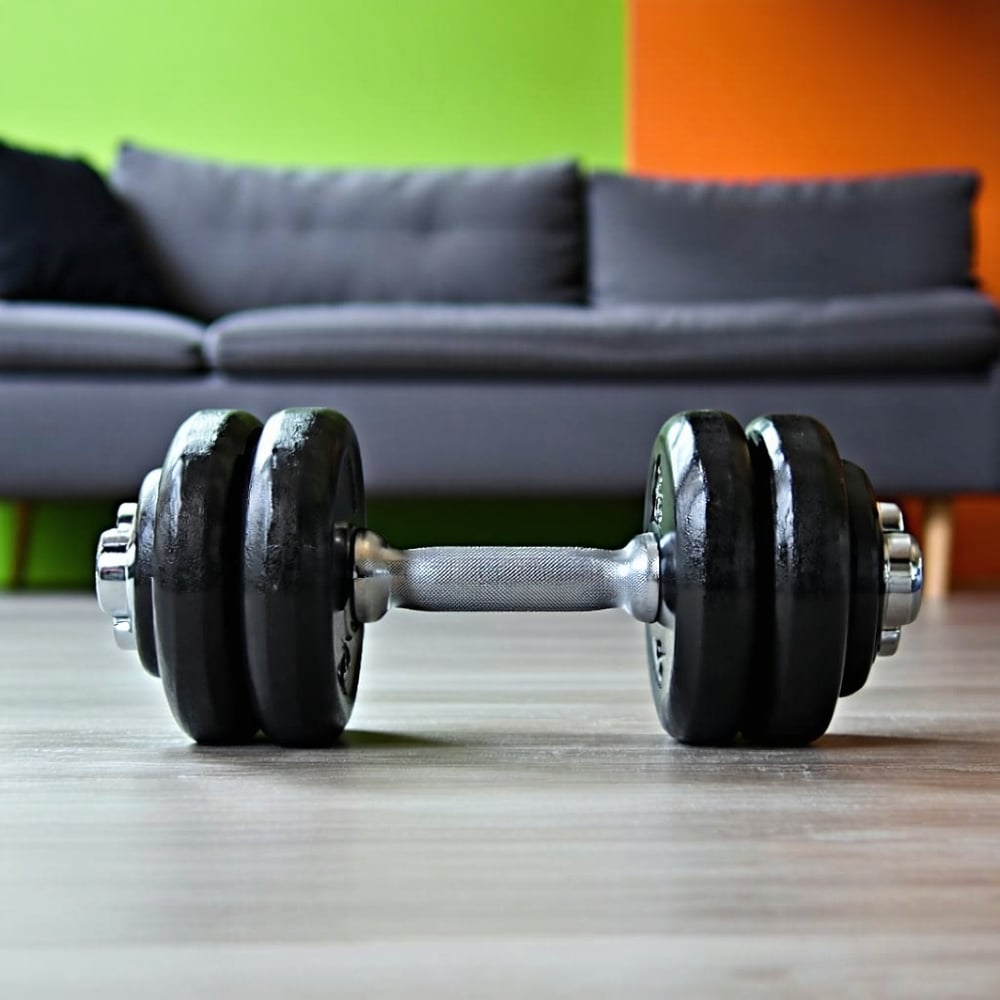TRAIN LIKE A PRO: ATHLETIC WORKOUTS YOU CAN DO AT HOME
fitness Mindset Apr 24, 2025 7:55:24 AM Kyle Receno 5 min read

You don’t need a gym full of machines or a sports facility to train like an athlete. If your goal is to move better, get stronger, build explosive power, and develop real-world performance — you can do it right at home.
Athletes don’t just train to look good — they train for speed, strength, agility, and durability. And the good news is: you don’t need elite-level equipment to unlock those same benefits.
Whether you’re a weekend warrior, a busy entrepreneur, or someone who simply wants to feel and move like an athlete — this guide gives you a proven, no-nonsense approach to athletic workouts you can do from the comfort of your living room, garage, or backyard.
🧠 What Makes an “Athletic” Workout?
Athletic training focuses on enhancing your movement quality, power output, coordination, and muscular endurance — not just muscle size.
Key components include:
- ✅ Explosive power (jumps, sprints, plyometrics)
- ✅ Strength and control (bodyweight or weighted resistance)
- ✅ Mobility and flexibility
- ✅ Core stability
- ✅ Speed, agility, and balance
According to the National Strength and Conditioning Association (NSCA), well-rounded athletic programs integrate multiple fitness qualities, not just hypertrophy or fat loss.
🏋️♂️ Athletic Home Workout Blueprint
You don’t need a squat rack or Olympic barbell. With just your bodyweight, resistance bands, dumbbells (optional), and some open space, you can train like the pros.
🔁 Warm-Up (5–8 minutes)
Prime your nervous system and improve movement quality:
- Jumping jacks × 30 sec
- World’s Greatest Stretch × 5 reps per side
- High knees × 30 sec
- Bodyweight squats × 10
- Arm circles × 30 sec
⚡ Workout Format: 3 Athletic Circuits
Each circuit includes a power move, a strength movement, and a core or stability drill.
🌀 Circuit 1: Power + Strength + Core
- Jump Squats – 3 sets × 10 reps (focus on max height)
- Push-Ups (or Band-Resisted Push-Ups) – 3 sets × 10–15 reps
- Plank Reach & Tap – 3 sets × 30 sec
🌀 Circuit 2: Speed + Agility + Mobility
- Skater Bounds – 3 sets × 30 sec
- Split Squats (Bodyweight or DB) – 3 sets × 8–12 reps each leg
- World’s Greatest Stretch or Hip Flexor Mobility Flow – 3 sets × 30 sec per side
🌀 Circuit 3: Athletic Core & Total-Body Control
- Bear Crawl (Forward & Backward) – 3 sets × 20 seconds
- Banded Rows or Towel Isometric Rows – 3 sets × 12 reps
- Side Plank with Leg Lift – 3 sets × 20 sec per side
🔥 Finisher (Optional: 4-Minute EMOM)
Every Minute on the Minute for 4 Minutes:
- 5 Burpees
- 10 Mountain Climbers (each leg)
- Max Jump Lunges until the minute is up
🏆 Benefits of Training Like an Athlete
✔️ Improved functional strength
✔️ Enhanced power and speed
✔️ Better mobility and movement control
✔️ Injury prevention through stability and core control
✔️ Greater body awareness and confidence
These workouts aren’t about chasing aesthetics — though that will come too. They're about building a body that performs, not just one that looks good.
🏠 Why It Works at Home
Athletic-style training relies on multi-planar, bodyweight, and explosive movements, which don’t require bulky gym equipment. You can build a high-performance training routine using:
- Resistance bands
- Dumbbells or kettlebells
- Floor space and household items (chairs, towels, stairs)
This makes it ideal for:
- Home-based athletes
- Entrepreneurs or professionals with limited time
- Parents balancing fitness and family
- Former athletes getting back into shape
🧩 Customize for Your Goals
- Want to build more power? Add more jumps and sprints.
- Looking for fat loss? Reduce rest and increase intensity.
- Need to improve mobility? Lengthen the warm-up and recovery segments.
Athletic training is adaptable — and scalable — for every fitness level.
🔁 The Bottom Line
You don’t need a pro-level facility to train like a pro. With strategic programming and effort, you can develop speed, strength, and agility — from your living room.
Train smart. Train hard. Train like an athlete — anywhere.
Sources:
- NSCA Essentials of Strength Training and Conditioning (4th Edition)
- Behm DG, Young JD. (2017). Effects of strength training on performance and injury risk. Sports Medicine.
- Journal of Sports Science & Medicine (2020)
Join the List – Get Powerful Insights Straight to Your Inbox!
